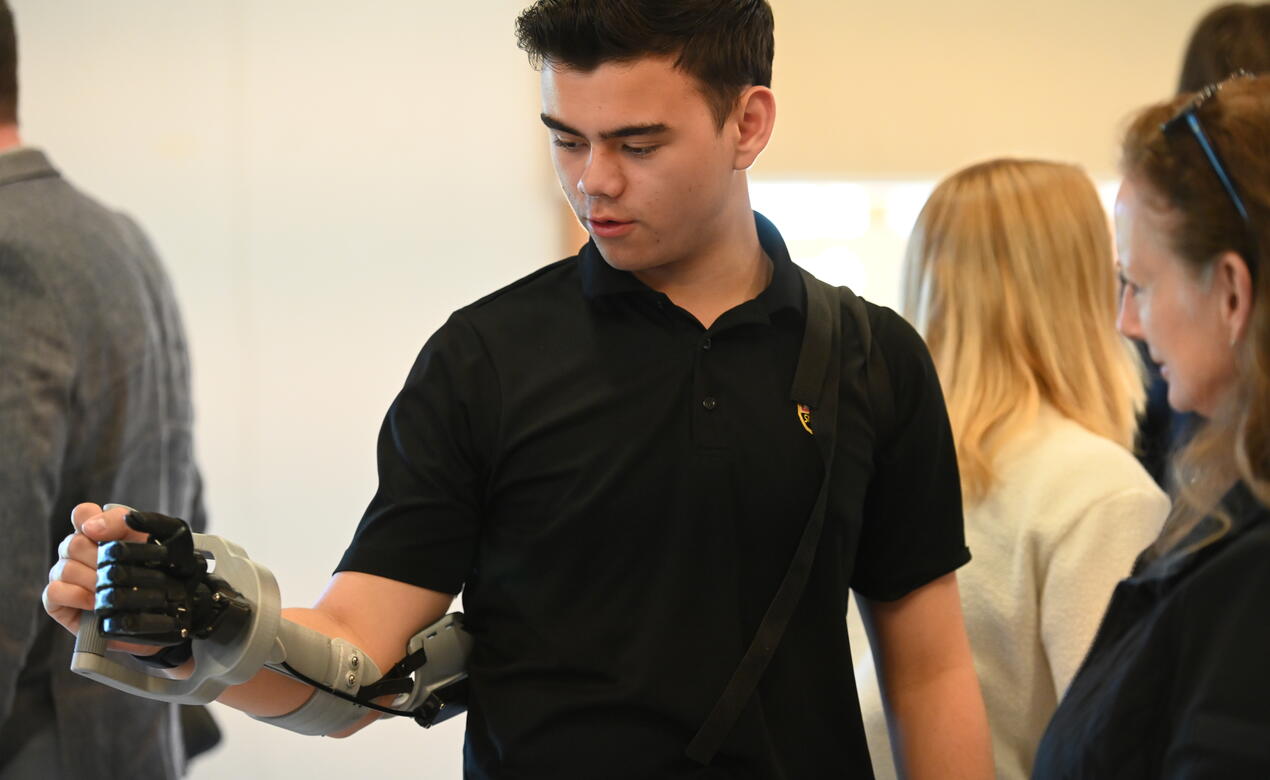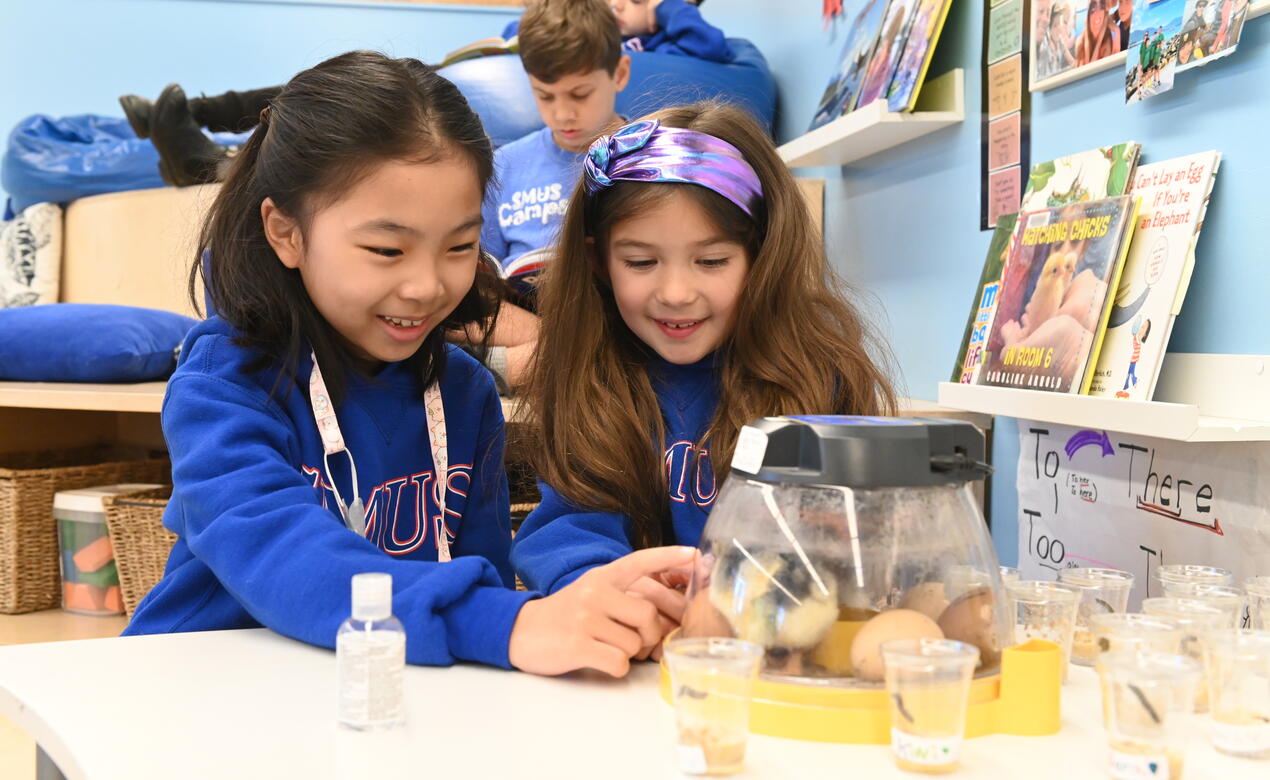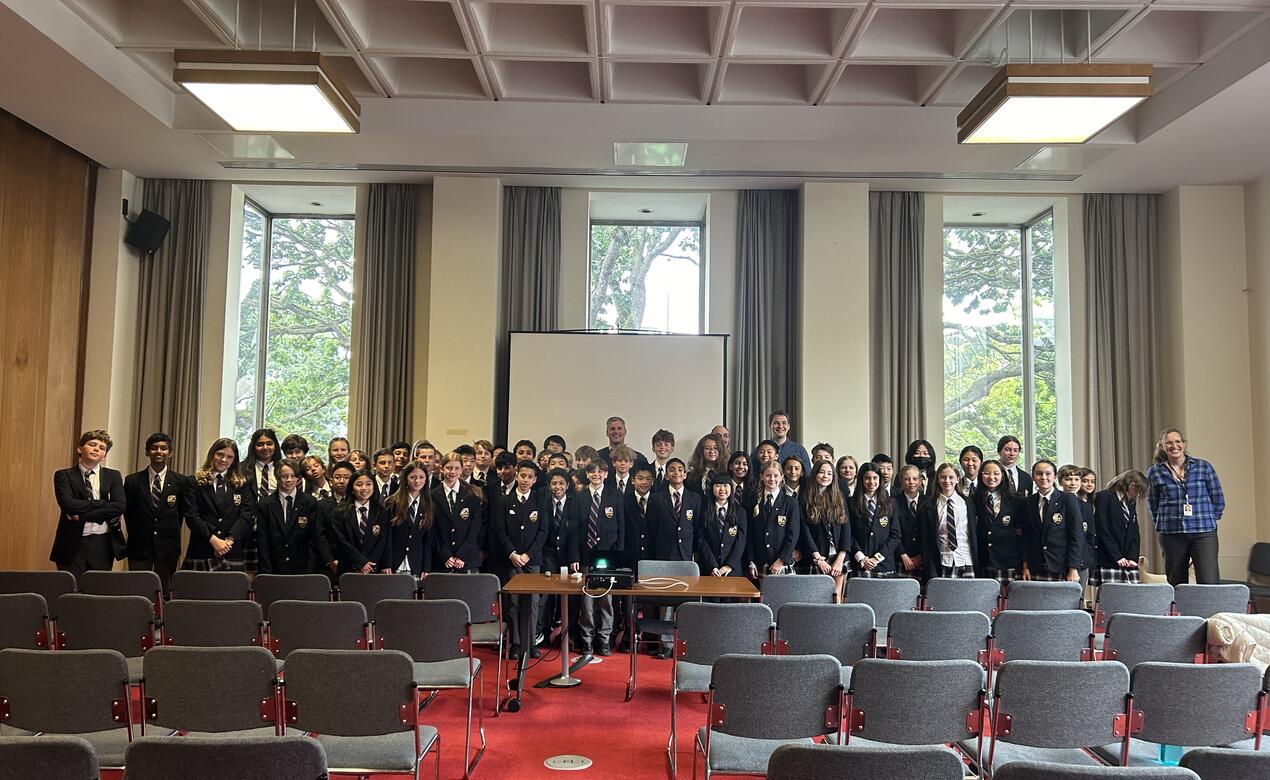
As we approach our graduation and closing celebrations, I find myself thinking about the breadth of achievements and student learning experiences that really signify the excellence and rigour of our school. I have been reflecting on the inspirational learning experiences across our program, specifically, this final term, where we have seen showcases of inspirational student work, ranging from student presentations, concerts, musical theatre, and art shows to Capstone projects, science experiments, research presentations, and many other great works throughout our academic program.
A few specific examples where students were engaged in learning experiences that connected to real-world and authentic experiences include examining life cycles of salmon, chicks and butterflies in Grade 2, the Grade 6 presentations at Victoria City Hall with solutions to a problem presented by one of the city counsellors, the presentation and recording of a play written by our own teachers of Grade 7 French students in Montreal and Quebec City, and the Engineering 10 presentations where students shared their prosthetic extension designs as proposals for the Victoria Hand Project. These examples are only a few of the many across our program where authentic learning experiences and real-world connections deepen student engagement and motivation. The immersion in the learning experience, where solving a problem, designing a product or coming up with solutions to present to an audience beyond the classroom teacher, significantly enhances the learning process and creates more meaningful connections for the learners.

Authentic professional learning
At SMUS, we also take pride in the ethos of ongoing professional learning that our teachers engage in throughout the year to enhance their practice. This year, we have explored topics such as Indigenous ways of knowing, Equity, Diversity, and Inclusion (EDI), reading and writing workshops, thinking classrooms in math and sciences, designing learning experiences with authentic real-world connections, social-emotional well-being, and executive functioning. There is a thirst for ongoing learning among my colleagues which is an aspect of what we articulate in our Portrait of a Teacher.
Artificial intelligence (AI) and the impact of education is increasingly top of mind when we are designing learning experiences. As we explore the potential of generative AI tools to enhance learning and productivity, we are also keeping in mind technology's influence on emotional and mental wellness. Jonathan Haidt’s latest book, 'The Anxious Generation,' has sparked discussions within our team about the need for community action in an age characterized by phone-based and social media-based childhoods. I look forward to creating learning opportunities for our teachers, students and parents around these critical issues.
Looking Ahead

This summer, alongside family travel, I plan to dedicate time to reading professionally about creating the best conditions for deeper and inspiring learning. In an era dominated by discussions about AI, smartphones, and social media - and their impact on learning and mental health - it's crucial to focus on 'authenticity and interconnectedness'. Designing learning experiences with these elements in mind has never been more important. Guided by our First Peoples Principles of Learning, we keep in mind that ‘learning is holistic, reflexive, reflective, experiential, and relational.’ Along with our many demonstrations of learning across the program, this week’s presentations of the Graduating class of 2024’s Capstone projects also showcased vigorous, authentic, and interconnected learning, preparing students for life beyond school.



